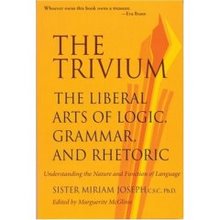Al-Ghazali on Disciplining the Soul & on Breaking the Two Desires
Al-Ghazali on Childrearing
Translated by: T.J.Winter (Abdal Hakim Murad)
Read more...
The sheer mystery of our lives; that which we see and that which we do not see; demands an explanation.
Al-Ghazali on Childrearing
Translated by: T.J.Winter (Abdal Hakim Murad)
Posted by
oceans within
at
11:57 PM
0
comments
![]()
Posted by
oceans within
at
10:10 PM
0
comments
![]()

When I began homeschooling our daughter this fall, I chose to commit three days per week to spelling. We have been using seven words per spelling lesson from the "Explode the Code" book series. The progression in the books has been very appropriate for our daughter, and she really enjoys the work.
An important point that should be mentioned is this: anytime you feel that a younger child--typically before the age of seven indicates (whether physically or verbally), that they are no longer interested in studying, you should respond to their feelings and end the lesson. Trying to push through it will only have negative affects, in that, disdain begins to grow in the child with regard to studying. Once this happens, it is as if a trust has been violated and then studying becomes a chore rather then an activity which they enjoy.
At the age of five, after five months our daughter is producing work like this (i.e. the above scanned page) consistently. A main point for us has been to listen to what our daughter is telling us. And most of the time we know when she has reached her limit--by observing her actions--not by her telling us.
Built upon the success that we have found pertaining to this spelling process, I have been inclined to try some short sentence dictation with her. In the next post I will--In sha Allah--scan a page of that work.
wa salam.
Posted by
oceans within
at
10:31 PM
0
comments
![]()

I have been homeschooling my daughter (5 yrs. old) using a series in English--(spelling and writing)--named "Explode the Code". It has been fantastic! After four months of daily "spelling reviews" and short sentence writing, I wanted to try some dictation work with her. The above notebook page was her dictation for today.
Witnessing her development has been, and still is, completely therapeutic. I encourage every parent to become pro-active with regard to their child's education.
The rewards are beyond description!!! The love that is born out of this parent-child relationship is something that we are all in need of.
Posted by
oceans within
at
10:40 PM
0
comments
![]()
The difference between information and knowledge is the application of those facts, or discerning reality from conjecture. Truly effective education develops the minds of thinking and articulate students who are able to process facts into arguments and communicate those arguments clearly and persuasively. Therefore, for education to be effective, it must go beyond merely conveying facts.
Posted by
oceans within
at
9:09 PM
0
comments
![]()

